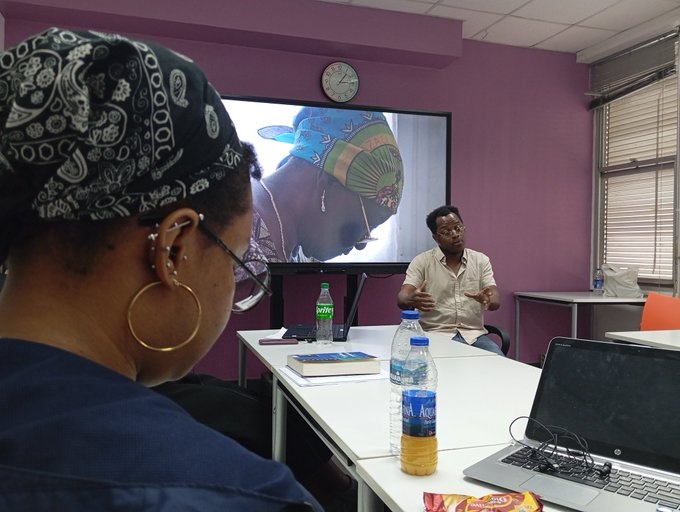Staff Reporter
The 45th edition of the Durban International Film Festival includes documentaries from South Africa, Bhutan, France, Hungary, Kenya, Nigeria, Tunisia, Saudi Arabia, and the USA, to name a few. Two films straight from Sundance and Berlinale are also included in the programme.
“The documentary programme at DIFF always affords a wide-ranging view of the world and interrogates our preconceived ideas of people and places. In addition to films from different parts of the globe, the South African view is often as challenging and offers a different perspective on complex South African situations”, says Andrea Voges, the Programme Head and Manager of the Durban International Film Festival.
The Durban International Film Festival (DIFF), presented by the Centre for Creative Arts at the University of KwaZulu-Natal, is regarded as a leading film festival in Africa
The South African documentary Banned follows the story of Joe Bullet, the first film to feature an all-African cast and was banned shortly after its release in 1973. Diana Keam’s intimate Don’t Be Late for My Funeral focuses on the personal story of her relationship with her retired domestic worker, Margaret Bogopa Matlala. This intimate portrayal fills in the fine detail sketched by Moore’s broad brushstrokes.
The Opening and Closing night films will be South African documentaries. Details will be announced on July 2nd.
Of the international documentaries, Agent of Happiness follows the journey of one of the agents who measure happiness in Bhutan, where the Gross National Happiness indicator is one of the ways the government measures its effectiveness.
The Laikipia region of Kenya, home to indigenous pastoralist communities, white ranchers, and conservationists, is the backdrop for The Battle for Laikipia. The collision between drought and elections offers a very real perspective of the raving effects of climate change and the complicated legacy of British colonialism.
Women are the central characters in two award-winning films. Q directed by Jude Chehab, has won five awards, including Best Feature by the International Documentary Association and Best New Documentary Director at the Tribeca Film Festival.
It depicts the insidious influence of a secretive matriarchal religious order in Lebanon on three generations of women in the Chehab family. The multigenerational tale of the eternal search for meaning describes the toll that decades of unrequited love, lost hope, abuse, and despair takes on a person.
Four Daughters focuses on Olfa Hamrouni and her daughters. Two of her daughters disappeared in 2015, and her life with her two remaining daughters is one of heartbreak and grief. Co-winner of the Cannes ’23 Golden Eye 2024 and Oscar nominee for the Best Documentary Feature, this film was also recognised as the Best Documentary and won awards for Best Director and Best Editing at the Critics’ Awards at last year’s Cannes Film Festival.
Another highly acclaimed film, Coconut Head Generation won the Grand Prize at the 45th Cinéma du Réel in 2023, where the jury noted that it “reminds us of cinema’s potential as vector and actor of societal change, as a site of resistance and a place of community-building.
“A film that posits cinema as an encounter whilst drawing the portrait of a generation breaking with the past to claim its emancipation with a beautiful intelligence and passion” was directed by Alain Kassanda. The film provides a rare insight into the formation of the #EndSARS movement in Nigeria.
Films from the leading International Documentary Film Festival Amsterdam (IDFA) are included in the programme. Citizen Sleuth from the USA examines the ever-popular genre of true crime podcasts as Emily Nestor conducts an amateur murder investigation into the death of Jaleayah Davis.
Told in real time over several years, it chronicles the rise, fall, and redemption of a podcaster in the new media landscape. Another popular topic, sport, is highlighted in COPA 71, where Rachel Ramsay and James Erskine shine a light on women’s football and the unofficial Women’s World Cup when football teams from England, Argentina, Mexico, France, Denmark, and Italy gathered at Mexico City’s Azteca Stadium.
Invisible Nation is the third film from IDFA. Vanessa Hope’s unprecedented access to Taiwan’s sitting head of state is a living account of her tightrope walk as she balances the hopes and dreams of her nation between the colossal geopolitical forces of the U.S. and China.
INSIDE EDUCATION







